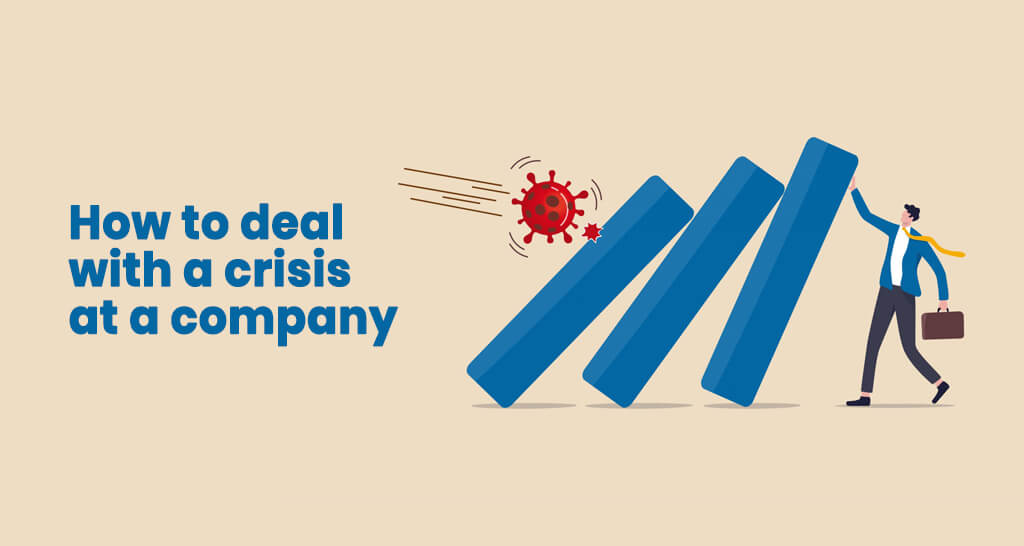Managing a crisis will be expected of you at some point, regardless of how well you prepare for different unexpected events that might occur in business. Managing a crisis well is an essential skill for surviving any unexpected event. Problems are certain to arise at some point, even if, the majority of the time, everything operates without any trouble, and when they do, your staff will look to you for direction. Managers shouldn’t freak out when a crisis arises at their job. They should be prepared to deal with the situation rationally and logically.
Why is the Management of a Crisis So Important?
Building your company and preparing for challenges are good things. However, be prepared for the worse. You can’t just hope everything works out if a crisis arises, yet you can’t ignore it. Managing a public relations crisis in a manner distinct from a financial crisis or communications catastrophe is the most crucial part of responding to a crisis. Each crisis requires a unique strategy, response, and assessment. Communication is important when handling a crisis; that helps you to know the ability of the organization to hold up this crisis.
The best practices for crisis management
- Discover potential threats
The first step towards efficient crisis management is accurate threat assessment and anticipation. Holding a brainstorming session with participants from all departments will allow you to compile a complete list of all potential dangers. Workplace injuries, breaches in computer security, and faulty goods are all examples of catastrophes induced by people. First, you must assess the risks by weighing the likelihood of their materialization against the potential damage they might do to the business. After reading this in-depth analysis, you’ll know that measures exist to reduce certain risks without lowering productivity or the quality of service supplied. Two approaches to reducing the chance of a cyber attack are investing in powerful anti-malware software and conducting periodic training sessions for staff members on topics relevant to cyber security.
- Evaluation of the Vulnerable Points
The very first thing that has to be examined is if there is an emergency. Conduct a comprehensive audit of the company to identify the places of possible vulnerability and weak connections within the organization. You will then be able to prioritize which parts will need care. The responsibility for this lies with the crisis management team. It would help if you got feedback from various sources for a more precise review.
- Establish a Specific Goal.
Alongside a general managing plan that establishes a general focus point from the crisis management, you need to build a primary focus point that must be handled at the beginning step when creating a crisis deal. Setting up guidelines for public crisis management aids the business owner to start fast.
- Analyze the Problem in Depth
The planning process has started. The effectiveness of your crisis management efforts will ultimately depend on your and your team’s understanding of the internal and external obstacles you’re up against and the answers to those obstacles.
- Monitor the crisis, plan accordingly, and Communicate
Put your team in charge of social media monitoring on high alert and give it a top priority. If they see any symptoms of criticism or increased activity on social media, they should immediately and effectively respond with things that they have already generated. Executives should never take matters into their own hands and stoke the fire. Still, they should be pushed to apologize as quickly as possible by utilizing key comments that have been predetermined and permitted.
- Resolve and Take care of the Issue
First, discover the problem’s fundamental cause. You will only be able to solve the issue if you come up with a successful strategy if you address the problem’s real cause. Try to solve the essential root cause of the problem first, then enable the strategic plan accordingly.
- Assessment Made After the Event
After dealing with a crisis and minimizing its direct and indirect effects, it is essential to investigate the causes that most likely led to the crisis and what might have been done differently or in the future to avoid such crises.
Final word
Predicting prospective crises is possible by first engaging in careful strategic planning and risk management. If you follow the steps mentioned above to succeed, your company will be better positioned to confront a catastrophe’s expected and unexpected effects. Having a strategy in place may assist your company in enduring a crisis and emerging on the other side with little harm to its finances and image.



Discussion about this post